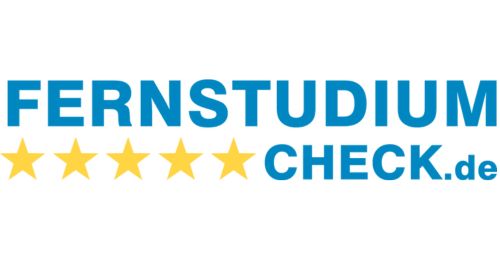This Website uses cookies to improve your visit on our website. More Info
Study Finder
- MBS QUICK FACTS:
- State recognized since 1999
- September
- 18 or 24 Months
- English
- Book a consultation appointment
Before we compare the programs in detail, let's take a quick look at the individual programs. Each of the three universities – Munich Business School, HAM and IST Hochschule – offers Sports Management programs with specific focuses and orientations.
The MBS program combines international business education with a specialized focus on sports management and media. Through hands-on projects and strong industry connections, students gain expertise in strategic management, marketing, digital media, and event organization.
The HAM program blends business management with key aspects of sports management, including marketing, event planning, and leadership. The semi-virtual study format allows students to gain real-world experience while pursuing their degree.
This master's program is designed for professionals looking to deepen their expertise in sports business, covering topics like marketing, sponsorship, event management, and digital transformation. The program offers a mix of online learning and practical projects.
The following special features play a role in one or more of the Sports Management Master's programs at Munich Business School (MBS), Hochschule für angewandtes Management (HAM) and IST Hochschule für Management (IST). They provide insights into the content, structure and special features of the programs and how they deviate from each other.
The following is a brief explanation of the concepts mentioned in the program.
Elective courses give you the opportunity to choose the modules that match your interests and career goals, allowing you to tailor your studies to your individual needs. In many degree programs, you can choose more than one elective course.
Concentrations are advanced topics that you can choose within your study program to specialize in specific areas such as marketing, finance or entrepreneurship. In some programs, you can even choose more than one Concentration.
A degree program with an international focus prepares you for the challenges and opportunities of global markets through intercultural content, languages and often international experiences such as semesters abroad.
A semester abroad allows you to study at a partner university in a foreign country, gain international experience and improve your language and intercultural skills.
A mentoring program connects you with experienced professionals or alumni who are ready to provide valuable advice, career tips, and personal support.
All three Universities have special projects in their course of study, but each is different in their focus.
A business project (MBS) is industry-oriented and practical, solving real-world business problems. A concentration project (HAM) is more specialized, deepening knowledge in a chosen field, but may still have practical applications. A scientific project (IST) is purely research-focused, emphasizing theoretical frameworks, data collection, and academic analysis.
Virtual learning refers to education conducted online, allowing students to access lectures, assignments, and discussions remotely. It offers flexibility and interactive tools for studying from anywhere, often through digital platforms, live sessions, or recorded materials.
Case studies are real-world business scenarios or problems analyzed in an academic setting to help students apply theoretical knowledge to practical situations. They are commonly used in business and management programs to develop problem-solving and decision-making skills.
A university's accreditations are an important indicator of the quality and recognition of its study programs. Institutions such as the Ministry of Education, FIBAA, the German Council of Science and Humanities, and renowned international accreditation organizations such as AMBA, AACSB, and EQUIS assess the academic excellence, practical orientation, and international standards of universities. Below, we take a look at the most important accreditations of the three programs of the Munich Business School (MBS), the Hochschule für angewandtes Management (HAM) and the IST Hochschule.
| MBS | HAM | IST | |
|---|---|---|---|
| German Ministry of Education | ✔️ | ✔️ | ✔️ |
| FIBAA | ✔️ | ✔️ | ✔️ |
| German Council of Science and Humanities | ✔️ | ✔️ | ✔️ |
| AMBA | ❌ | ❌ | ❌ |
| AACSB | ✔️ | ❌ | ❌ |
| EQUIS | ❌ | ❌ | ❌ |
The level of internationality varies across the three universities and their respective programs:

The following table summarizes the key facts about the three different Sports Management programs in Germany for you.
| Munich Business School | Hochschule für angewandtes Management | IST Hochschule für Management | |
|---|---|---|---|
| Degree program | Master International Business - Sports Management and Media | Master Sports Management | Master Sports Business Management |
| Final degree | Master of Arts | Master of Arts | Master of Arts |
| Duration | 3 Semesters | 3 Semesters | 4 - 6 Semesters |
| Study program language | English | German | German |
| Start of studies | Winter semester | Winter & summer semester | Winter & summer semester |
| Location | Munich | Berlin, Dortmund/Unna, Düsseldorf, Frankfurt/Main, Hamburg, Hannover, Cologne, Mannheim, Munich/Ismaning, Nuremberg, Stuttgart, Vienna (Austria) | Remote |
| Format | Full-time study | Full-time study | Full-time or part-time study |
| Numerus Clausus | No Numerus Clausus | No Numerus Clausus | No Numerus Clausus |
| Recognition | State-recognized | State-recognized | State-recognized |
| Study requirements | Bachelor's degree in a related subject or a pre-master's program instead, also possible without a bachelor's degree under certain circumstances, proof of English proficiency through a test or a previous degree in English | Equivalent or similar undergraduate degree (pre-study course or recognition of a practical semester is partially possible/necessary) | A first degree in a similar subject. Alternatively, a different first degree with relevant additional qualifications and professional experience in the industry. Proof of 30 credit points from economics courses or completion of bridge courses. At least three months of practical training or professional experience in a sports organization or a sports-related business. |
| Scholarship opportunities? | Yes, up to €4,000 in funding | No | Yes, mostly about €3,000 in funding |
| Thesis | Master's thesis in German or English | Master's thesis | Master's thesis |
| Special features | Electives, International Focus, Semester abroad, Mentoring Program, Business Project, Renowned Trainers from Sports Management, Dual Degree possible | Concentration, Concentration Project, Partially Virtual Learning & Partially On-site Study, 42% practical relevance, Study Plus (Study beside work) & Dual Plus (Combining practical work in a specific company with theoretical lectures at a university) Possible | Electives, Scientific Project, 100% Virtual Learning, Case Studies, also Dual Study possible |
The best location for your Sports Management Study in Germany depends on your personal preferences and goals. Your choice should depend on your budget, industries and lifestyle. Here is a rough consideration of the three locations Munich, Cologne and Hamburg for a Study Sports Management in Germany:
| Munich | Cologne | Hamburg | |
|---|---|---|---|
| Economy | 10/10 | 7/10 | 8/10 |
| Internationality | 9/10 | 8/10 | 7/10 |
| Networking Opportunities | 8/10 | 6/10 | 7/10 |
| Infrastructure | 9/10 | 9/10 | 9/10 |
| Quality of Life | 10/10 | 7/10 | 8/10 |
| Cost of Living | 2/10 | 5/10 | 2/10 |
| Student Life | 8/10 | 8/10 | 6/10 |
| Nature | 10/10 | 5/10 | 7/10 |
| Recreational Possibilities | 10/10 | 8/10 | 7/10 |
| Culture | 9/10 | 8/10 | 8/10 |
| 85/10 | 71/100 | 72/100 |
The career prospects after completing the three master's programs differ mostly in the sector of internationality and whether the alumni can speak German, but all provide opportunities in the sports industry:

Graduates have excellent career opportunities in the international sports industry, including roles in sports marketing, sponsorship, media, and event management. Potential employers include global sports federations, professional clubs, agencies, and media companies. The strong international focus also opens doors to careers in multinational sports organizations.
This program prepares students for leadership roles in the German sports industry, if you can speak German, with career paths in club and association management, event organization, sports marketing, and sponsorship. Graduates can work for professional sports teams, event agencies, or in corporate sports management.
Graduates can pursue careers in various sectors of the sports business, such as sports marketing, event and venue management, sponsorship, and digital transformation in sports. The learning model makes it particularly fitted to mostly professionals looking to advance their careers in clubs, associations, or sports-related businesses.
Alumni experiences are a crucial factor when choosing the right Sports Management program. Ratings on platforms like the german sites StudyCheck or FernstudiumCheck give you authentic insights into the quality of teaching, support, and career prospects from the perspective of former students. Below, we compare ratings of the Sports Management master's programs at the MBS, HAM, and IST Universitys to give you a solid basis for your decision.


These ratings are current as of February 18, 2025 and are from the German rating portals StudyCHECK.de and FernstudiumCHECK.de.
★★★★☆ 4,3
98% would recommend
★★★★☆ 4,5
100% would recommend
★★★★☆ 4,0
87% would recommend
★★★☆☆ 3,3
67% would recommend
★★★★☆ 4,4
98% would recommend
★★★★☆ 4,4
100% would recommend
Munich boasts an excellent quality of life, offering a wide range of recreational activities, a lively cultural scene, and well-developed infrastructure. With its iconic beer gardens, green spaces like the English Garden, and renowned events such as Oktoberfest, the city has a unique charm. Just beyond Munich, picturesque mountains and lakes are easily reachable, while within the city, thrill-seekers can enjoy attractions like the famous Eisbach wave. Additionally, numerous networking events provide valuable career opportunities for students.
Challenges:
Living expenses in Munich are among the highest in Germany, particularly when it comes to housing costs.
Cologne is famous for its lively and welcoming atmosphere, making student life dynamic and diverse. The city has a young, creative community, and events like Carnival foster a strong sense of togetherness. Additionally, a variety of student organizations and cultural offerings provide great opportunities for networking and self-expression.
Challenges:
In some areas, Cologne’s infrastructure is not as advanced, and certain parts of the city feel less modern compared to other major urban centers. Moreover, rental prices are relatively high compared to other cities in North Rhine-Westphalia.
Hamburg blends city life with a maritime charm, making it an appealing choice for students who appreciate an elegant yet laid-back environment. The city boasts a strong connection to the water, numerous parks and waterfront areas, and a well-structured infrastructure.
Challenges:
That said, the cost of living—particularly rent—is often considerably higher than in many other major cities, which can be a financial burden for students. Additionally, Hamburg is sometimes seen as more reserved and less vibrant, especially for those seeking a lively nightlife or a thriving creative subculture.
Germany is a great choice for a Master's in Sports Management, thanks to its strong sports industry, internationally recognized universities, and excellent career opportunities. With a mix of theoretical knowledge and practical experience, plus access to top clubs and organizations, studying in Germany can give you a solid edge in the field. Plus, the quality of life and vibrant student cities make it an even better experience!
Sports Management is all about planning, organizing, and overseeing the business side of sports. It covers everything from managing teams and events to marketing, sponsorship, and fan engagement, ensuring that the sports industry runs smoothly and profitably.
Munich Business School is a top choice for Sports Management, offering a well-rounded program with strong industry connections, practical experience, and an international focus. If you're looking for a mix of academic excellence and real-world opportunities in one of Germany’s most dynamic cities, it’s definitely worth considering!
Management in sports is crucial because it keeps everything running smoothly, from organizing events and handling finances to marketing and building strong teams. It ensures that athletes, clubs, and organizations can perform at their best while creating great experiences for fans and securing long-term success.
The Master Sports Management and Media at Munich Business School is a great option if you want to combine business, media, and sports expertise. It offers hands-on experience, industry connections, and an international perspective—perfect for building a successful career in the sports industry.

